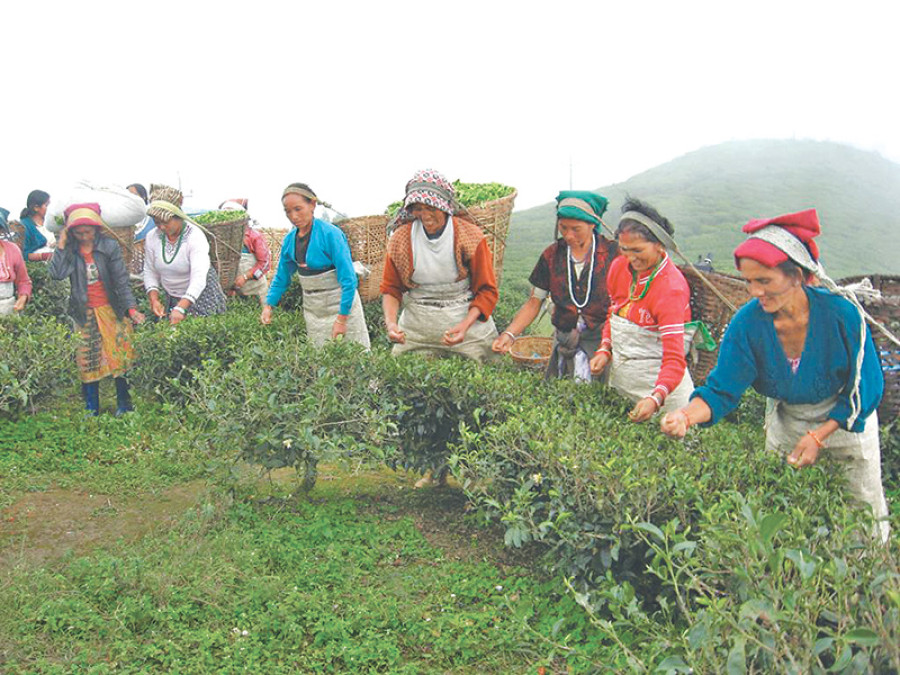Money
Plucking leaves no more workers’ cup of tea
Private tea gardens are turning into bushes as producers are facing hard time in hiring workers to pluck tea leaves.
Chandra Karki
Private tea gardens are turning into bushes as producers are facing hard time in hiring workers to pluck tea leaves.
Shortages of tea pluckers are slowly spreading across the entire district as the wage rates offered by the tea estates are far from attractive. Workers here say these days it is rather comfortable to go abroad and earn.
More than 1,400 ropanis of tea gardens owned by different small holders have been facing a shortage of workers as more youths are opting to go abroad for employment.
“The tea producers are incurring losses in millions,” said Shankar Khanal, president of District Tea Cooperative Association. The increased migration trend is likely to aggravate the problem further which the industry has started experiencing after two and a half decades since tea plantation began in the district.
Shortage of labour is going to be a major challenge for the tea industry, said Tea and Coffee Development Board in Solma.
According to the association, the problem aggravated after tea processing factories did not paid producers timely. As the producers did not receive the payment, they failed to pay the workers, the association said, adding that such trend had discouraged workers and forced them to find alternatives.
A large number of farmers, who have switched to tea from cereal and other cash crops in the district, have started to feel the heat as they have been incurring losses in millions.
“Some farmers who have decided to expand their tea gardens are not interested in transplanting the tea saplings from the nurseries,” said farmer Kedar Poudel of Musangkhel in Laligurans Municipality. “The nurseries have turned into bushes.”
A tea factory in Hile, Dhankuta has not paid the small farmers who had supplied tea leaves for last three years, he said.
Another farmer Bishnu Kumar Singh from Chhatar Rural Municipality said many farmers are now a worried lot as they had started tea farming to get good returns. “Some have started demolishing their tea gardens,” he said.
There are more than 300 small tea farmers in the district.
Two and a half decades ago, farmers had started growing tea in the district that was brought from Ilam. They had followed the success of tea farming by small farmers in Ilam. But the situation is different now, said Singh.
“We were unable to pay the workers as the tea factories were always reluctant to pay us,” said Chitra Bahadur Karki, a farmer in Basantapur. “As tea cultivation needs large number of workers compared to other farming, untimely payment obviously discourages them. Ultimately, the farmers have to incur losses as workers are not willing to work,” he said.
Most of the workers associated in tea gardens have left for Gulf countries in search of job. “Even those who have returned are not interested to work in the gardens.”
Tea gardens have been expanded over more than 3,800 ropanis in the district.




 9.89°C Kathmandu
9.89°C Kathmandu















